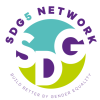In the intricate realm of global affairs, gender assumes a crucial role in shaping diplomatic interactions, economic structures, and security paradigms. The exploration of gender in international relations focuses on the intricate interplay of societal expectations and norms linked to femininity and masculinity, actively molding power relations, roles, and expectations within communities. This perspective recognizes and scrutinizes how these constructs engage with power dynamics, norms, and institutions, thereby fueling enduring gender inequalities in the sphere of global politics.
Moving into the domain of international political economy (IPE), the lens of gender offers a critical perspective on how economic structures and policies impact individuals differently based on their gender. In the interconnected world of globalization, trade, and economic development, gender becomes a crucial determinant of access to resources, employment opportunities, and economic participation. Examining IPE through a gendered lens reveals the intricate ways in which economic processes contribute to and perpetuate gender-based inequalities on a global scale.
As we navigate the multifaceted landscape of international security, a gender perspective challenges traditional notions that often prioritize state-centric threats and military considerations. Instead, it explores the differential impact of security policies on women, men, and gender-diverse individuals. Issues such as gender-based violence, human trafficking, and the roles of women in conflict zones come to the forefront. Recognizing these nuances is essential for a comprehensive understanding of security challenges and for crafting policies that are inclusive and sensitive to the diverse experiences of individuals across the gender spectrum.
As the SDG5 Network, our exploration of gender in international relations, IPE, and international security reveals nuanced layers of dynamics and impact often overlooked in conventional analyses. Emphasizing the significance of recognizing and analyzing gender dynamics, we aim to foster greater inclusivity and equity in global governance, economic systems, and security practices. Through the integration of a gender perspective, we strive for a more holistic understanding of global affairs, acknowledging the diverse needs and experiences of gender groups. The SDG5 Network expresses its dedication to fostering a more just and inclusive world for all based on the fundamental principles of the Universal Declaration of Human Rights.

